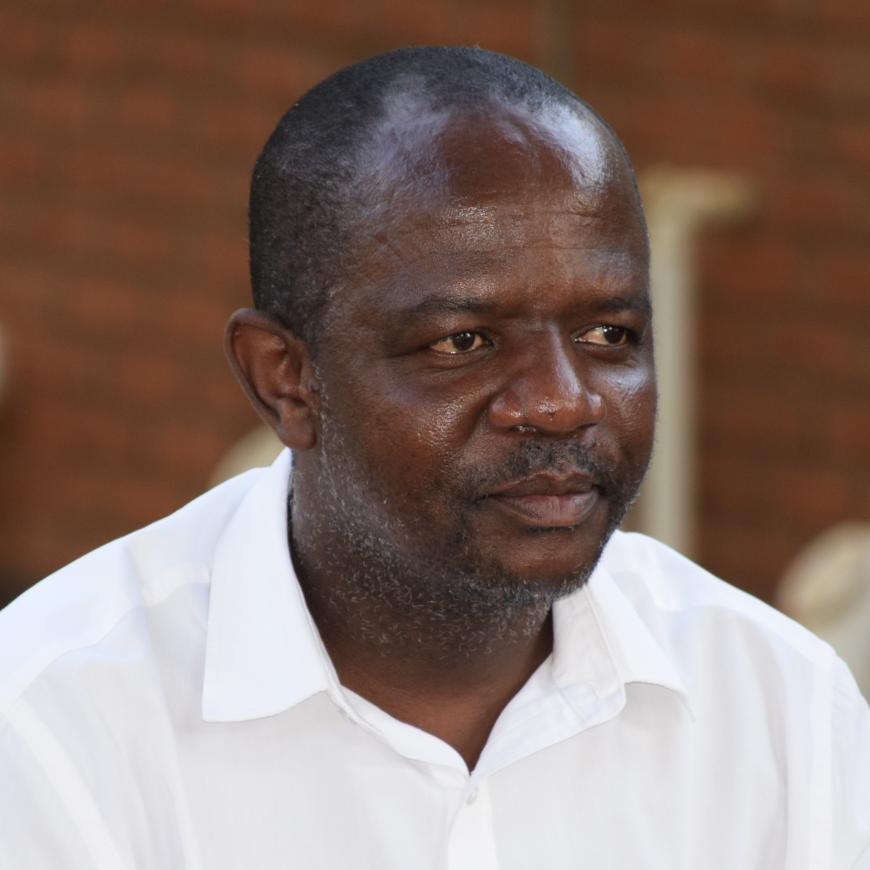Dr. John Kadzandira holds a PhD in Health Systems and Health Policy Research from the Royal College of Surgeons in Ireland (RCSI, 2018), a MSc Degree in Applied Human Nutrition from the University of Nairobi (2001) and a BSc in Agriculture (majoring in Human Nutrition) from the University of Malawi (1996). He has over 20 years of conducting field research in Malawi and other Southern African countries mainly focusing on socio-economic aspects of HIV and AIDS, maternal and child health including PMTCT/ART, sexual and reproductive health, aging, livelihoods and coping/resilience strategies and human resources for health. His expertise is in both quantitative and qualitative research methods, baseline surveys, data analysis, report and proposal writing as well as monitoring and evaluation (M&E).
Dr Kadzandira has led studies that have sampled >15,000 units across the country including the 2015/16 first ever National Population Based HIV Impact Assessment (MPHIA) and the 2017 Baseline Evaluation for the USAID-funded Malawi ONSE Project. He has completed studies for a number of organisations including the Government of Malawi, USAID, the World Bank, DfID, National AIDS Commission, Save the Children and many other organisations.
Recent publications
-
Jennifer Yourkavitch, Kristen Hassmiller Lich, Valerie L. Flax, Elialilia S. Okello, John Kadzandira, Anne Ruhweza Katahoire, Alister C. Munthali, James C. Thomas (2018): Interactions among poverty, gender, and health systems affect women’s participation in services to prevent HIV transmission from mother to child: A causal loop analysis (http://journals.plos.org/plosone/article?id=10.1371/journal.pone.0197239)
-
Flax V, Yourkavitch J, Kadzandira J, Munthali AC (2016). Gender factors influencing participation in the prevention of mother-to-child transmission of HIV Program in Malawi under Option B+. Measure Evaluation publication TR-16-142, 2016.
-
Brugha R, Kadzandira J, Simbaya J, Dicker P, Mwapasa V, Walsh A 2010: Health workforce responses to global health initiatives funding: a comparison of Malawi and Zambia: Human Resources for Health. (http://www.human-resources-health.com/content/8/1/19)
Projects
- Baseline, Process and Endline Evaluation for the Malawi ONSE Project
MEASURE Evaluation has been contracted by USAID/Malawi to conduct an impact evaluation of a newly awarded project Organized Network of Services for Everyone’s Health (ONSE) project (2016-2021). ONSE is the follow-on to USAID’s flagship project in Malawi, Support for Service Delivery Integration (SSDI) and is designed to effect change through improved access to and quality of maternal, neonatal, and child health including nutrition (MNCH), family planning/reproductive health (FP/RH), malaria, and water, sanitation and hygiene (WASH) services; strengthened district health systems in support of MNCH, FP/RH, malaria, and WASH; and increased community demand for these priority services. The ONSE project is being implemented in 12 districts of the country.
Centre for Social Research partnered with MEASURE Evaluation in carrying out a baseline of the project interviewing ~8,185 women of reproductive age (WRA) randomly sampled from six districts (3 intervention and 3 non-intervention): Nkhotakota, Salima, Machinga and Mzimba, Ntchisi, Nsanje Districts, respectively. The baseline survey was conducted between March and July 2017 while the first implementation process monitoring was carried out in January and February 2018. There are more implementation process monitoring assessments planned for the period 2019-2021 and an endline survey in 2021.
Budget for the baseline survey was: US$762,805.32 (MK545,405,806.00) while each annual process monitoring assessment is estimated to cost ~ US$25,000
-
The Malawi Population-Based HIV Impact Assessment (MPHIA)
MPHIA was a nationally representative bio-maker survey, conducted in 14,268 households from 27 districts and two cities across the country in 500 Enumeration Areas between November 2015 and August 2016. The main objective of MPHIA was to assess population level indicators of HIV infection, related risk factors, and the uptake and effectiveness of HIV prevention and treatment interventions. The survey was funded by USAID through ICAP at Columbia University for a total value of ~US$3.3m
-
House to House Meter Validation Survey (April-October 2016)
This survey was conducted on behalf of Lilongwe Water Board and was a census of households and meters in the catchment area of Lilongwe Water Board. Among others, the survey was carried out to verify meter serial numbers and account details, identify illegal connections, identify sources of non-revenue water and to estimate future demands for water by the residents of Lilongwe city and the surrounding areas. Total value for the study was ~K650m
